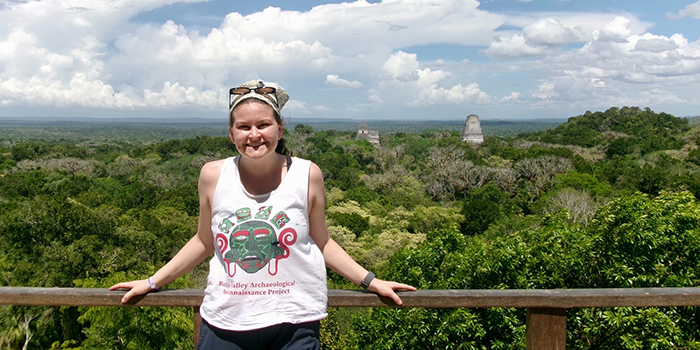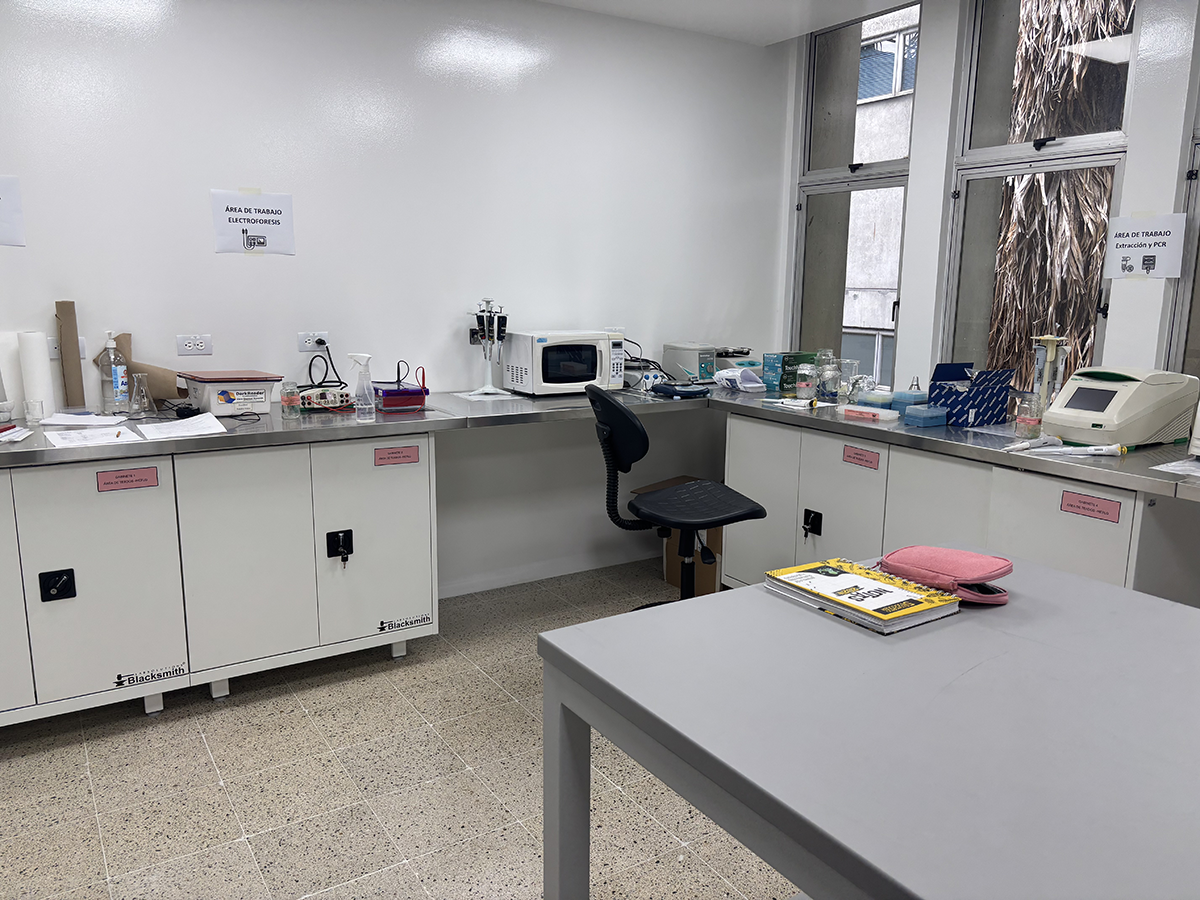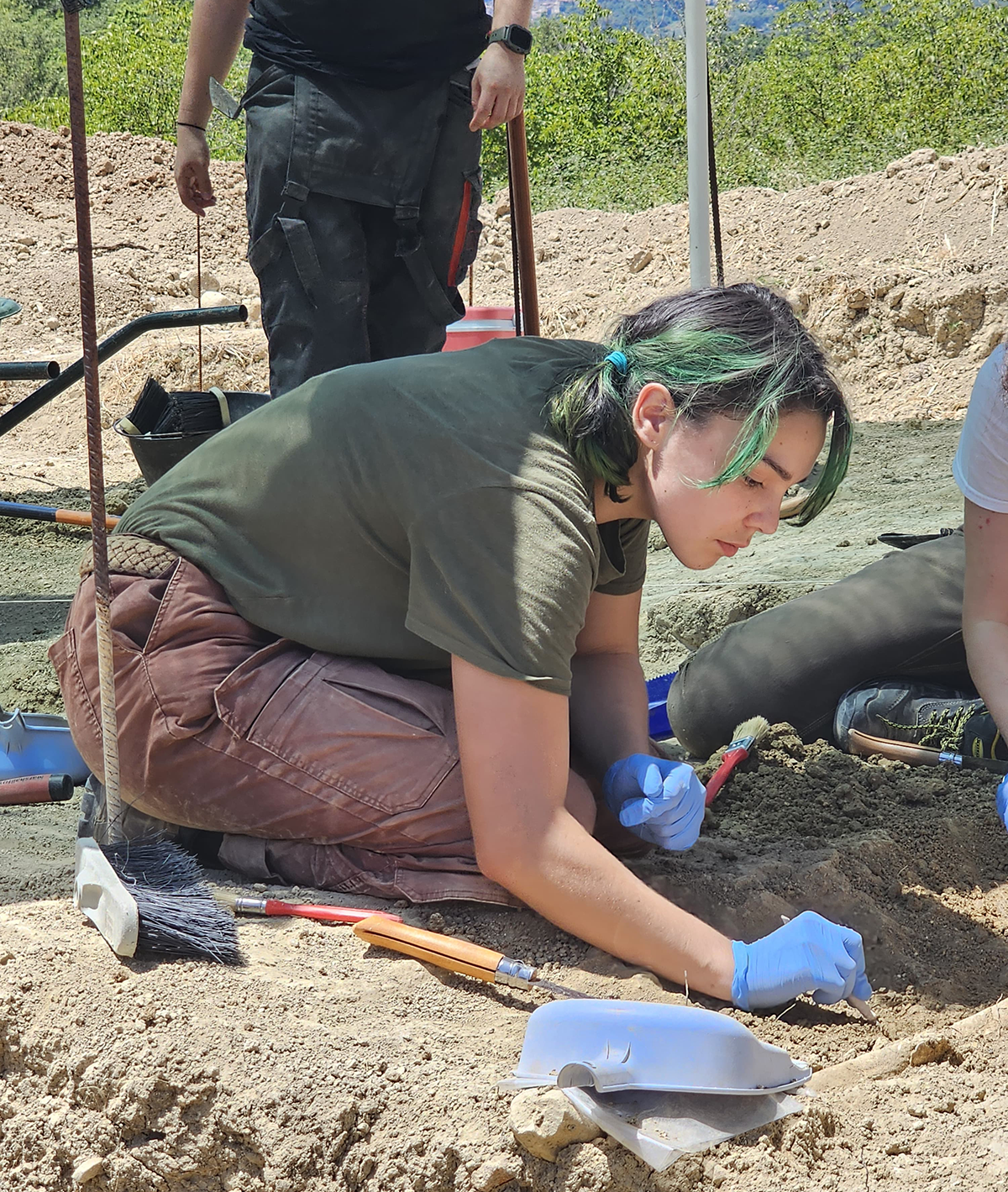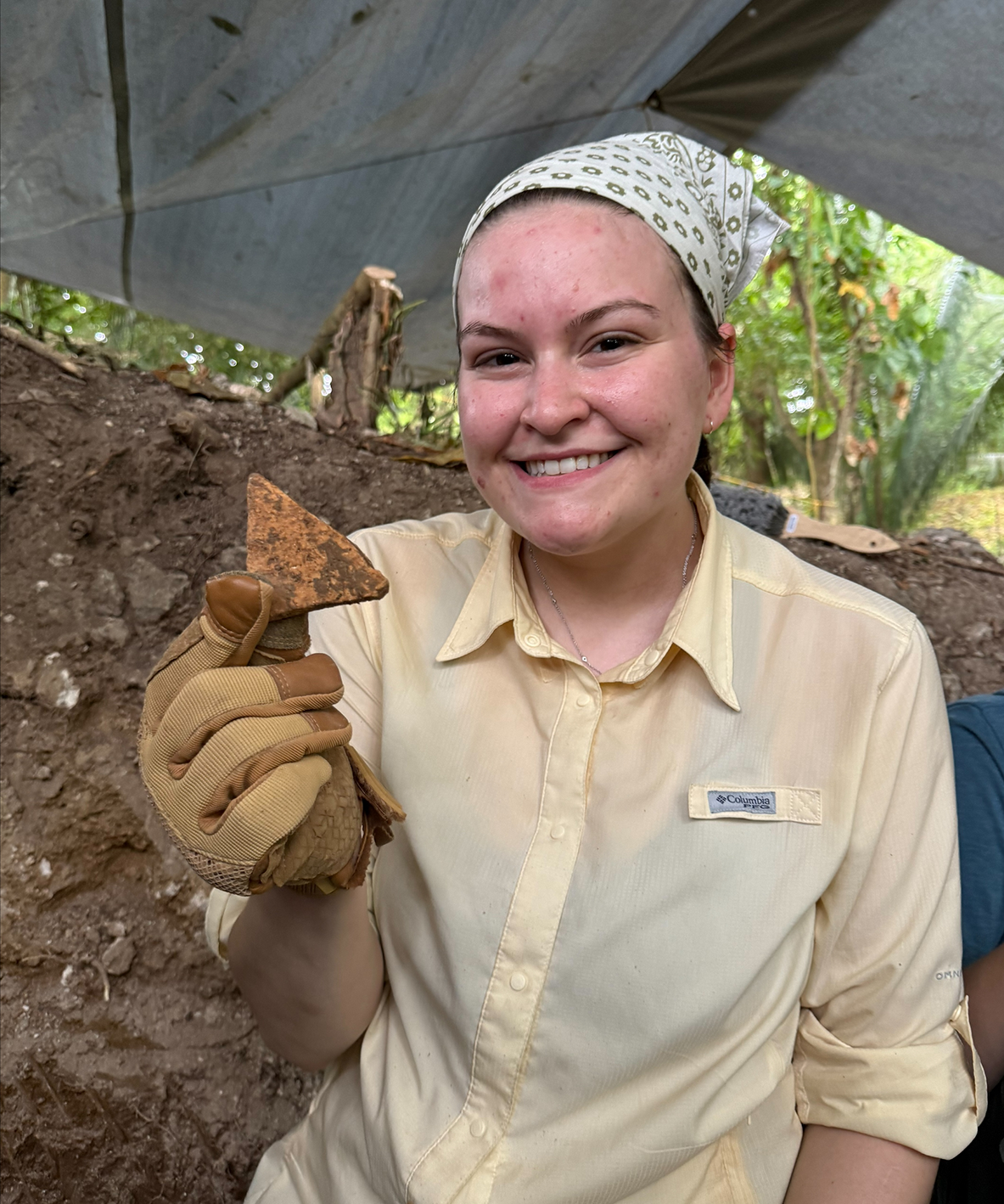Three Pitt undergrads attended field and lab work abroad in summer 2025 assisted by grants from the CCA, Department of Anthropology, and CLAS

Our amazing undergrads participated in field and lab work in Belize, Colombia, and Italy.
Read their stories:
Kianna German (Colombia):

"This past summer semester, I had the privilege to join CLAS at PITT on their seminar field trip to Medellín, Colombia. The photo is of one of the laboratories at Universidad Nacional de Colombia - UNAL (National University of Colombia). I conducted a lot of my observations and conversation while at this specific university location. It was such a great experience to be able to live the life of a student in another country with a different primary language. This trip pushed me to speak a more confident version of my Spanish while also picking up and learning some of the slang that is used in this specific region of the country. Being a chemistry major, my investigation was centered around STEM (science, technology, engineering, and mathematics) education for women, and I was pleasantly surprised to see multiple women in the classrooms invested in the fields. It made me feel happy that my research would be able to reach, and hopefully multiply, the women in STEM or those who want to enter into a STEM field. In all, I met some students at the university that really helped my project along, and relating to the photo above, some professors were generous enough to let us come and look around their labs and/or classrooms. The entire trip has shown me that the citizens of Medellín are more than willing to help you out, regardless of where you come from or what you have to offer them in return."
Darcy Moore (Italy):

"This summer I was able to spend four weeks in Montecchio, Italy, excavating the 6th - 4th century B.C. Etruscan, Umbrian, and Roman tombs of the Necropoli Del Vallone Di San Lorenzo, with the Università degli Studi di Perugia. We found the graves of multiple individuals, and I was able to get firsthand experience in excavating and documenting ceramics, metalworks, and skeletal remains, as well as analyzing stratigraphy, taking soil samples, and more. I was also able to spend an afternoon in the bone lab, working with bioarcheological specialists on analyzing the remains we had excavated just that week. It was my first time working with human remains in the field, and it was a fantastic experience, during which I made many lifelong friends and professional connections."
Kaitland "Katie" Sonnett (Belize):

"This summer I attended Belize Valley Archaeological Field School, where I worked at the site Baking Pot. I worked under Dr. Julie Hoggarth and we studied the ancient Maya, specifically, the chronology of monumental construction trends in response to climactic changes in the late classic period.
As my first archaeological experience, I learned all sorts of techniques such as setting up an excavation unit, excavation techniques, bagging artifacts, and recording data. By the end of the session, I was able to identify trends in architecture, artifacts, and environmental changes. I absolutely loved discovering archaeology and the world of the Maya in Belize.
I am so incredibly grateful for the staff at BVAR and the Center for Comparative Archeology at University of Pittsburgh for giving me the opportunity to study abroad!"
The Importance of Fieldwork
Field schools are the first hands-on archaeology field experience for most undergrad students, and a required first step for more serious involvement. However, the cost can pose significant obstacles for students. The CCA will continue this grant program in 2026, with a short application due early in the spring semester.
